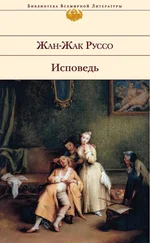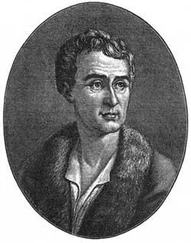Жан-Жак Руссо - The Confessions of Jean Jacques Rousseau — Volume 07
Здесь есть возможность читать онлайн «Жан-Жак Руссо - The Confessions of Jean Jacques Rousseau — Volume 07» — ознакомительный отрывок электронной книги совершенно бесплатно, а после прочтения отрывка купить полную версию. В некоторых случаях можно слушать аудио, скачать через торрент в формате fb2 и присутствует краткое содержание. Жанр: Биографии и Мемуары, literature_18, foreign_antique, на английском языке. Описание произведения, (предисловие) а так же отзывы посетителей доступны на портале библиотеки ЛибКат.
- Название:The Confessions of Jean Jacques Rousseau — Volume 07
- Автор:
- Жанр:
- Год:неизвестен
- ISBN:нет данных
- Рейтинг книги:4 / 5. Голосов: 1
-
Избранное:Добавить в избранное
- Отзывы:
-
Ваша оценка:
- 80
- 1
- 2
- 3
- 4
- 5
The Confessions of Jean Jacques Rousseau — Volume 07: краткое содержание, описание и аннотация
Предлагаем к чтению аннотацию, описание, краткое содержание или предисловие (зависит от того, что написал сам автор книги «The Confessions of Jean Jacques Rousseau — Volume 07»). Если вы не нашли необходимую информацию о книге — напишите в комментариях, мы постараемся отыскать её.
The Confessions of Jean Jacques Rousseau — Volume 07 — читать онлайн ознакомительный отрывок
Ниже представлен текст книги, разбитый по страницам. Система сохранения места последней прочитанной страницы, позволяет с удобством читать онлайн бесплатно книгу «The Confessions of Jean Jacques Rousseau — Volume 07», без необходимости каждый раз заново искать на чём Вы остановились. Поставьте закладку, и сможете в любой момент перейти на страницу, на которой закончили чтение.
Интервал:
Закладка:
It would be impossible to imagine in what manner I employed this short and precious interval which still remained to me, before circumstances forced me to beg my bread:—in learning by memory passages from the poets which I had learned and forgotten a hundred times. Every morning at ten o'clock, I went to walk in the Luxembourg with a Virgil and a Rousseau in my pocket, and there, until the hour of dinner, I passed away the time in restoring to my memory a sacred ode or a bucolic, without being discouraged by forgetting, by the study of the morning, what I had learned the evening before. I recollected that after the defeat of Nicias at Syracuse the captive Athenians obtained a livelihood by reciting the poems of Homer. The use I made of this erudition to ward off misery was to exercise my happy memory by learning all the poets by rote.
I had another expedient, not less solid, in the game of chess, to which I regularly dedicated, at Maugis, the evenings on which I did not go to the theatre. I became acquainted with M. de Legal, M. Husson, Philidor, and all the great chess players of the day, without making the least improvement in the game. However, I had no doubt but, in the end, I should become superior to them all, and this, in my own opinion, was a sufficient resource. The same manner of reasoning served me in every folly to which I felt myself inclined. I said to myself: whoever excels in anything is sure to acquire a distinguished reception in society. Let us therefore excel, no matter in what, I shall certainly be sought after; opportunities will present themselves, and my own merit will do the rest. This childishness was not the sophism of my reason; it was that of my indolence. Dismayed at the great and rapid efforts which would have been necessary to call forth my endeavors, I strove to flatter my idleness, and by arguments suitable to the purpose, veiled from my own eyes the shame of such a state.
I thus calmly waited for the moment when I was to be without money; and had not Father Castel, whom I sometimes went to see in my way to the coffee-house, roused me from my lethargy, I believe I should have seen myself reduced to my last farthing without the least emotion. Father Castel was a madman, but a good man upon the whole; he was sorry to see me thus impoverish myself to no purpose. "Since musicians and the learned," said he, "do not sing by your scale, change the string, and apply to the women. You will perhaps succeed better with them. I have spoken of you to Madam de Beuzenval; go to her from me; she is a good woman who will be glad to see the countryman of her son and husband. You will find at her house Madam de Broglie, her daughter, who is a woman of wit. Madam Dupin is another to whom I also have mentioned you; carry her your work; she is desirous of seeing you, and will receive you well. No thing is done in Paris without the women. They are the curves, of which the wise are the asymptotes; they incessantly approach each other, but never touch."
After having from day to day delayed these very disagreeable steps, I at length took courage, and called upon Madam de Beuzenval. She received me with kindness; and Madam de Broglio entering the chamber, she said to her: "Daughter, this is M. Rousseau, of whom Father Castel has spoken to us." Madam de Broglie complimented me upon my work, and going to her harpsichord proved to me she had already given it some attention. Perceiving it to be about one o'clock, I prepared to take my leave. Madam de Beuzenval said to me: "You are at a great distance from the quarter of the town in which you reside; stay and dine here." I did not want asking a second time. A quarter of an hour afterwards, I understood, by a word, that the dinner to which she had invited me was that of her servants' hall. Madam de Beuzenval was a very good kind of woman, but of a confined understanding, and too full of her illustrious Polish nobility: she had no idea of the respect due to talents. On this occasion, likewise, she judged me by my manner rather than by my dress, which, although very plain, was very neat, and by no means announced a man to dine with servants. I had too long forgotten the way to the place where they eat to be inclined to take it again. Without suffering my anger to appear, I told Madam de Beuzenval that I had an affair of a trifling nature which I had just recollected obliged me to return home, and I immediately prepared to depart. Madam de Broglie approached her mother, and whispered in her ear a few words which had their effect. Madam de Beuzenval rose to prevent me from going, and said, "I expect that you will do us the honor to dine with us." In this case I thought to show pride would be a mark of folly, and I determined to stay. The goodness of Madam de Broglie had besides made an impression upon me, and rendered her interesting in my eyes. I was very glad to dine with her, and hoped, that when she knew me better, she would not regret having procured me that honor. The President de Lamoignon, very intimate in the family, dined there also. He, as well as Madam de Broglie, was a master of all the modish and fashionable small talk jargon of Paris. Poor Jean Jacques was unable to make a figure in this way. I had sense enough not to pretend to it, and was silent. Happy would it have been for me, had I always possessed the same wisdom; I should not be in the abyss into which I am now fallen. I was vexed at my own stupidity, and at being unable to justify to Madam de Broglie what she had done in my favor.
After dinner I thought of my ordinary resource. I had in my pocket an epistle in verse, written to Parisot during my residence at Lyons. This fragment was not without some fire, which I increased by my manner of reading, and made them all three shed tears. Whether it was vanity, or really the truth, I thought the eyes of Madam de Broglie seemed to say to her mother: "Well, mamma, was I wrong in telling you this man was fitter to dine with us than with your women?" Until then my heart had been rather burdened, but after this revenge I felt myself satisfied. Madam de Broglie, carrying her favorable opinion of me rather too far, thought I should immediately acquire fame in Paris, and become a favorite with fine ladies. To guide my inexperience she gave me the confessions of the Count de ——-. "This book," said she, "is a Mentor, of which you will stand in need in the great world. You will do well by sometimes consulting it." I kept the book upwards of twenty years with a sentiment of gratitude to her from whose hand I had received it, although I frequently laughed at the opinion the lady seemed to have of my merit in gallantry. From the moment I had read the work, I was desirous of acquiring the friendship of the author. My inclination led me right; he is the only real friend I ever possessed amongst men of letters.
[I have so long been of the same opinion, and so perfectly convinced of its being well founded, that since my return to Paris I confided to him the manuscript of my confessions. The suspicious J. J. never suspected perfidy and falsehood until he had been their victim.]
From this time I thought I might depend on the services of Madam the Baroness of Beuzenval, and the Marchioness of Broglie, and that they would not long leave me without resource. In this I was not deceived. But I must now speak of my first visit to Madam Dupin, which produced more lasting consequences.
Madam Dupin was, as every one in Paris knows, the daughter of Samuel Bernard and Madam Fontaine. There were three sisters, who might be called the three graces. Madam de la Touche who played a little prank, and went to England with the Duke of Kingston. Madam Darby, the eldest of the three; the friend, the only sincere friend of the Prince of Conti; an adorable woman, as well by her sweetness and the goodness of her charming character, as by her agreeable wit and incessant cheerfulness. Lastly, Madam Dupin, more beautiful than either of her sisters, and the only one who has not been reproached with some levity of conduct.
Читать дальшеИнтервал:
Закладка:
Похожие книги на «The Confessions of Jean Jacques Rousseau — Volume 07»
Представляем Вашему вниманию похожие книги на «The Confessions of Jean Jacques Rousseau — Volume 07» списком для выбора. Мы отобрали схожую по названию и смыслу литературу в надежде предоставить читателям больше вариантов отыскать новые, интересные, ещё непрочитанные произведения.
Обсуждение, отзывы о книге «The Confessions of Jean Jacques Rousseau — Volume 07» и просто собственные мнения читателей. Оставьте ваши комментарии, напишите, что Вы думаете о произведении, его смысле или главных героях. Укажите что конкретно понравилось, а что нет, и почему Вы так считаете.











